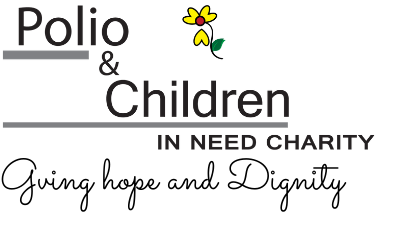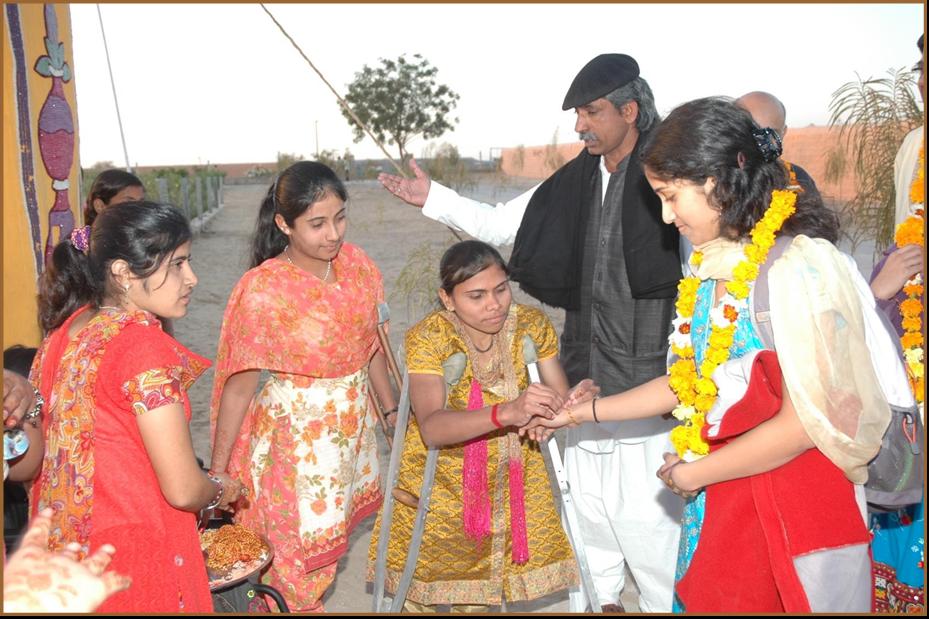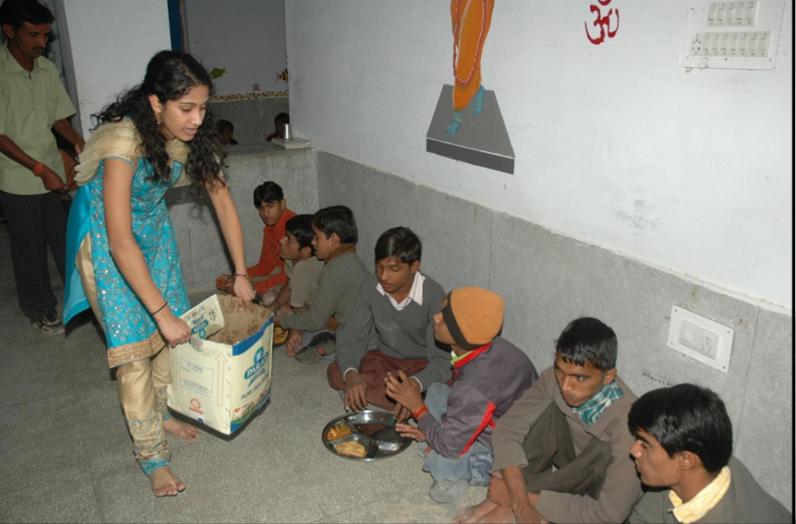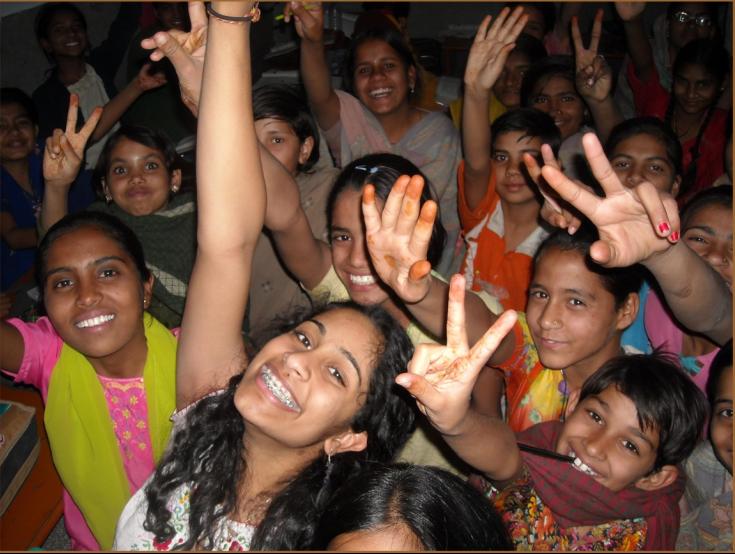Entering the gates of SKSN, with some trepidation I must admit, I expected to see a rundown school building with dismal children. My perception could not have been any further from reality. I was blown away by the school, its sponsors, and most of all, by the children.
That first evening was ‘Koshish” night ‐ an annual event hosted by the students to recognize their teachers and to give a warm send‐off to the new graduates. As I sat with the girls and watched the performances from up close, I realized that these children with physical deformities were dancing far better than I ever could, primarily because they had confidence. I realized that these children were no different than my friends or I. They still had their cliques and they also chatted through the performances and joked about their fellow classmates. We were of the same color, spoke the same language, and wore the same traditional dresses. The only way I could distinguish between “me” and “them” was that they were afflicted with polio.
Being welcomed to ‘Koshish’ night in the traditional way with garland and bracelet
But the children adapted to their disabilities in such a graceful way that eventually I began to think of their gait as a different way of walking and soon became accustomed to it. It was true that Mira couldn’t walk properly and had to use a wheelchair, but she had adapted so well to her disability, and Polio Children had provided so much for her through amenities such as ramps that everyone around her acted as if she were a completely able‐bodied child. Whatever the children lacked in physical capability, they more than made up for it in personality, charisma, and versatility. I grew close to some of the girls that were my own age. Together we put on ‘mehndhi’, braided each others’ hair, and told stories of our different worlds.
Serving students before the ‘Koshish’ night
The primary goal of my visit was to help the school start their own newsletter which it has not had in its sixteen year history. Interviewing students, teachers, and administrators really helped me to break the ice and get to know the people at SKSN. At first, I found it difficult because my Hindi is not fluent. However, I swore not to speak English, and slowly, I began to slip into the Hindi mode of thinking. When I failed to find a word, there would always be someone there to interpret my charades for the Hindi word I was seeking.
Most students come from villages where being disabled is scorned at and where there are no special amenities. Coming from the USA, where every building and every room is wheel chair accessible, it was disheartening to learn about this lack of basic support. Polio Children has done so much to change the lives of the children, like providing opportunities for university education and building a hostel for the girls. But there are things that still remain to be fixed. For one thing, the wheelchairs currently in use are not suited to the rough terrain found in the desert area and are constantly in need of repair. Another urgent need is the provision of a computer teacher because learning computer skills is extremely important for the 21 st century. If there is one thing I learnt from my trip, it’s the word ‘koshish’ (Hindi for effort) and its implications. SKSN is built around the philosophy of ‘koshish’, and Polio Children helps to preserve that philosophy. The word reverberates in the heart and soul of every child at SKSN: ‘koshish’ is an effort, a push, a chance to create your own destiny. The visit to SKSN changed my life. It is not just a cliché! My time at SKSN truly transformed the way I thought of disability as well as my outlook on life. As the week flew by, we became more comfortable in each others’ company and I left having made many new friends. In parting, I promised that I would come over for the next ‘Koshish’ evening.
Rejoicing with my new friends on my last night at SKSN
Divya Seth is a senior at Brighton High School in Rochester, NY. Last February she visited SKSN to experience first hand all she had heard about Polio Children and its work in India.



